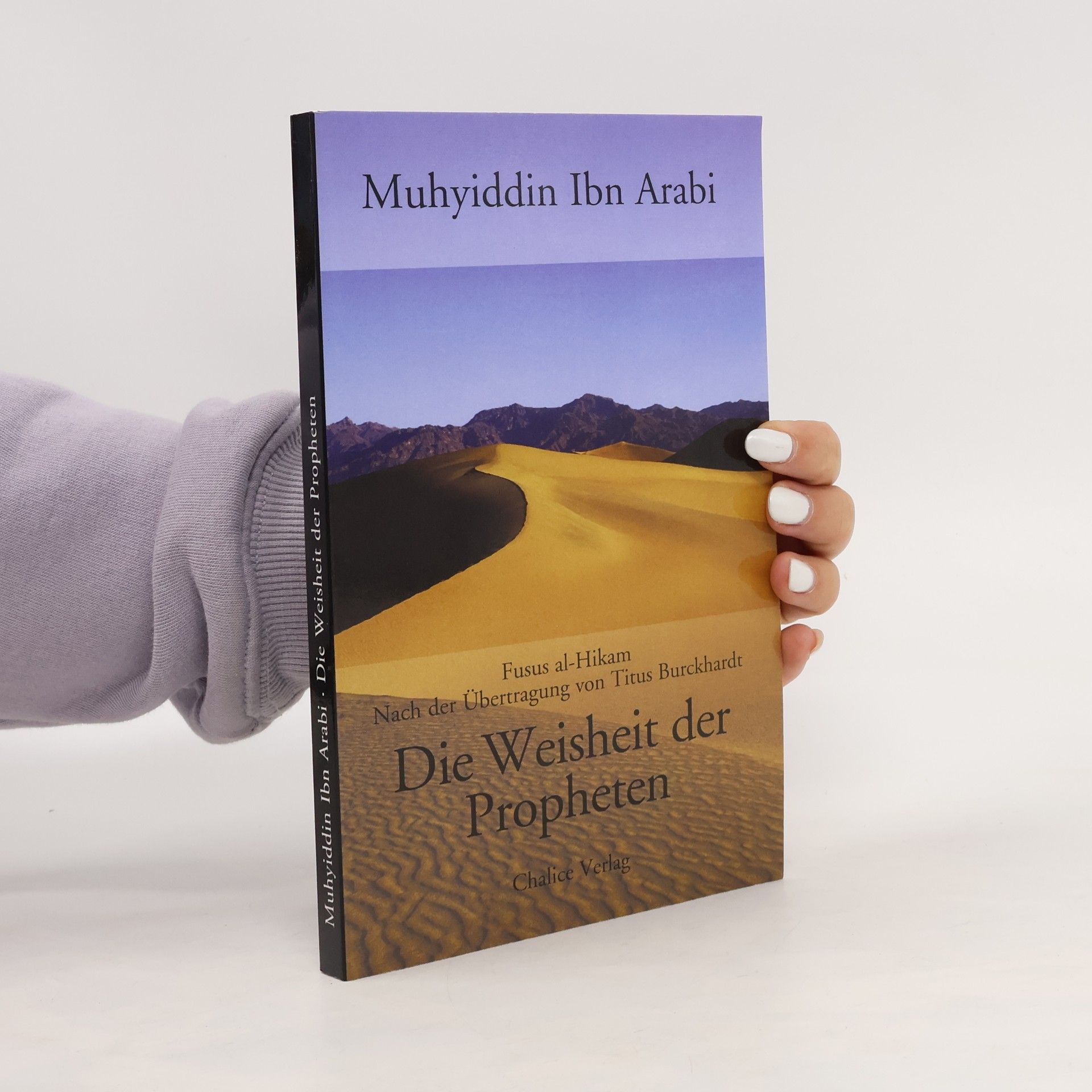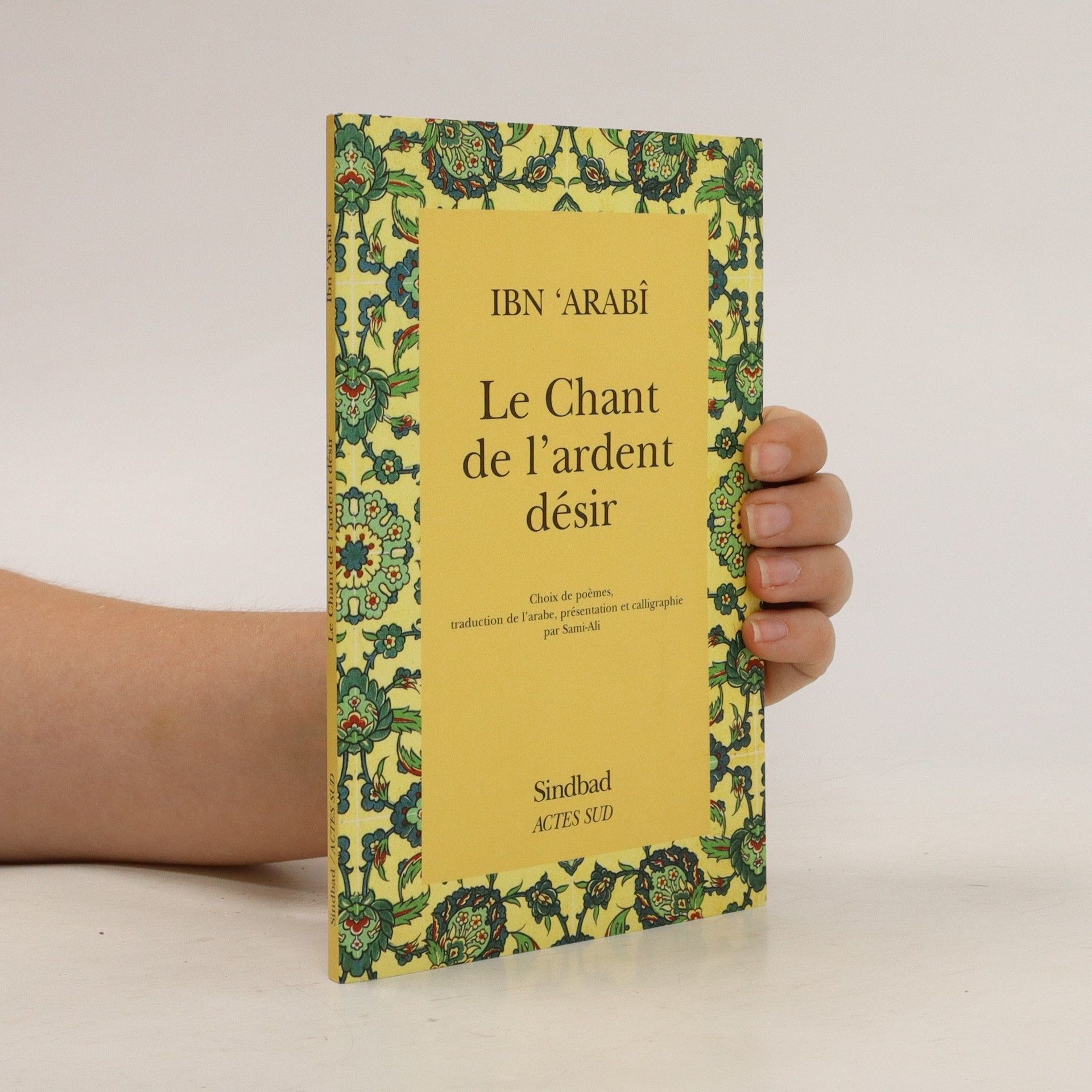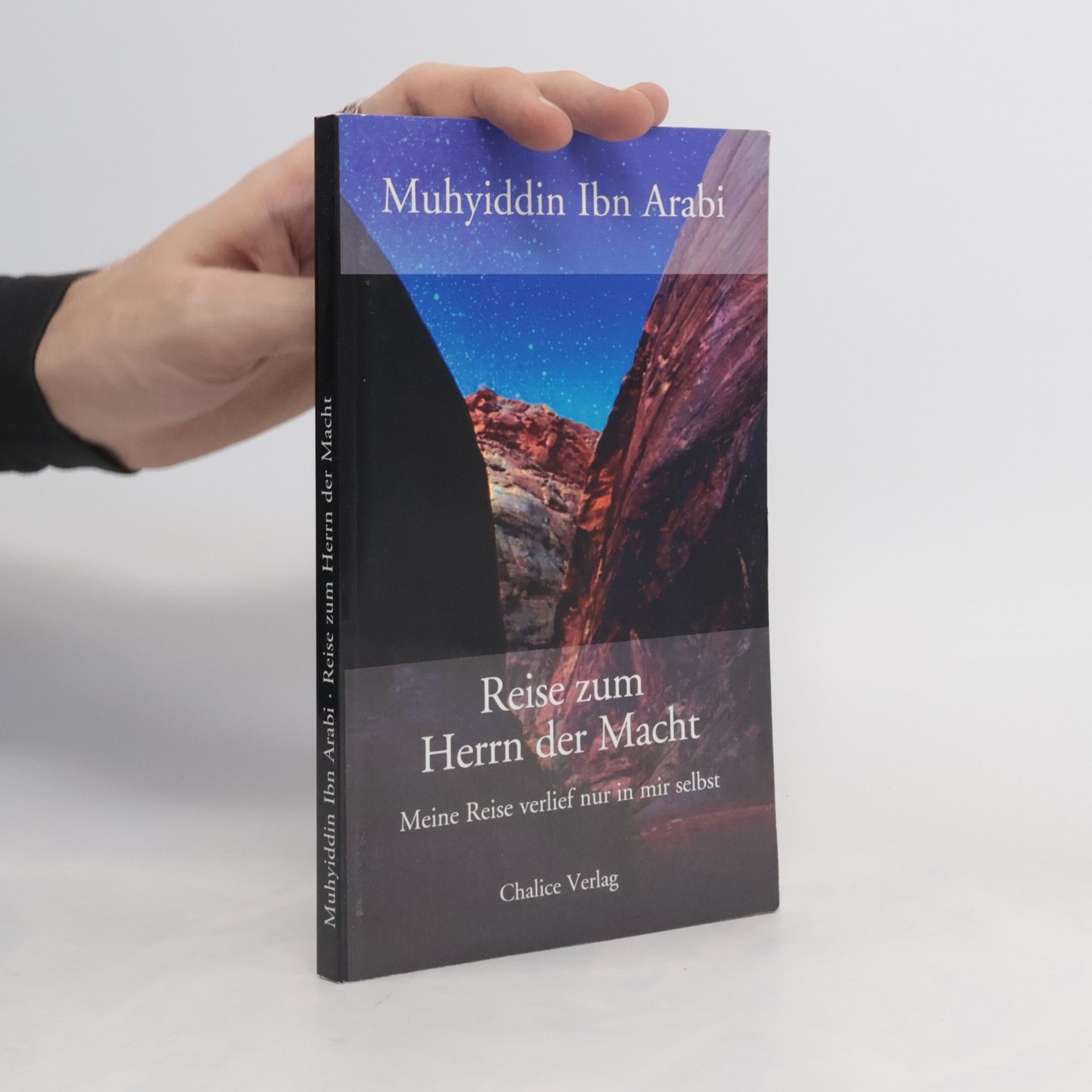Diffuse dans l'œuvre d'Ibn 'Arabî, le grand soufi andalou, c'est sans doute dans ce recueil que la poésie, profonde et raffinée à la fois, trouve sa forme cristalline la plus pure. Issue, lors d'une retraite spirituelle à La Mecque (598/1202), d'une rencontre temporelle avec celle qui en sera l'inspiratrice - Nizâm -, l'expression poétique ici tend d'emblée vers l'intemporel. Grâce à la transfiguration, la présence divine est immédiatement saisie dans la présence de la Bien-Aimée, alors que la poésie se déploie à travers des images où, miraculeusement, se concilient le visionnaire et le visuel. C'est cette vision où la passion, mue par la beauté, déchire et apaise en même temps, que cette première traduction en français restitue, en rendant à la poésie d'Ibn 'Arabî sa vertu d'être, comme toute poésie du sublime, un acte unique.
Ibn Arabi Livres
Ibn 'Arabī, connu sous le nom de 'Celui qui ravive la religion' et 'Le Plus Grand Shaykh', fut un mystique et philosophe soufi arabe. Son œuvre explore en profondeur l'unité de l'être et la réalisation du potentiel humain vers l'état d'homme parfait. Ibn 'Arabī a mis l'accent sur le cheminement vers l'accomplissement spirituel et la compréhension du divin. Sa vaste production a influencé pendant des siècles la pensée soufie et la philosophie mystique.






A collection of 101 hadith sayings. Comprised of a introduction explaining the meaning of Hadith, it stresses the importance of this tradition in Ibn 'Arabi's writing.
Ibn 'Arabi, the Tree of Being
- 255pages
- 9 heures de lecture
The Tree of Being (Shajarat al-Kawn in Arabic) is a work by Ibn Arabi, interpreted by Shaykh Tosun Bayrak who also includes here two other short works . Ibn Arabi (1165-1240) knew and influenced the great men of his time, including Ibn Rushd (Averroes), Jalaluddin Rumi and Suhrawardi, and his influence spread beyond the Islamic world to medieval Europe. Dante shows the influence of Ibn Arabi in the Divine Comedy for example.The book has four sections. First is the interpreter's introduction which includes a biography of Ibn Arabi and a discussion of his approach to Sufism. The second concerns Ibn Arabi's devotion to the Prophet Muhammad as the perfect man and gives a description of his character and actions. Third is a listing of the 201 names and attributes of the Prophet. The fourth is an interpretation of The Tree of Being a commentary on the mystical elements of the Qur'an and Islam comprising an inspired description of the cosmos and the perfect man as microcosm.
"A complete facing-page translation of the Tarjuman, which consists of sixty-one poems composed between 1202 and 1215 CE and published in 1215 at the earliest. The first word of the title can refer to a translator, interpreter, or biographer, on the one hand, and to a translation, interpretation, or biography on the other"--
Die Weisheit der Propheten
Die Fusus al-Hikam nach der Übertragung von Titus Burckhardt
- 177pages
- 7 heures de lecture
Die Fusus al-Hikam, das populärste Werk von Muhyiddin Ibn Arabi, handeln von der einen grenzenlosen Weisheit, die gleichzeitig einzigartig in sich selbst ist und vielgestaltig in ihrer Verkörperung durch die Linie der Propheten von Adam über Moses und Jesus bis hin zu Mohammed. Als solches ist dieses außergewöhnliche Werk ebenso eine Darlegung der innersten Bedeutung der Existenz des Menschen und seiner Fähigkeit zur Vervollkommnung wie auch eine esoterische Auslegung des Koran und aller drei abrahamitischen Religionen. >Auf diese Weise verlangte die Göttliche Ordnung nach der Klärung des Spiegels der Welt; und Adam wurde zur Klarheit dieses Spiegels und zum Geiste dieser Form selbst (...) und wurde >Mensch und Stellvertreter Gottes
Nefsini Bilen Rabbini Bilir
- 144pages
- 6 heures de lecture
Die sieben Tage des Herzens
Des größten Sufi-Meisters Morgen- und Abendgebete für jeden Tag der Woche
Traktat o miłości
- 158pages
- 6 heures de lecture
„Byłem ukrytym skarbem” – w tradycji islamu te poruszające słowa Boga, który pragnie, by go poznano i dlatego tworzy istoty zdolne poznawać, były punktem centralnym rozważań o miłości. Ibn ‘Arabi, XII-wieczny filozof i mistyk, pod wpływem uniesienia, które przeżył w Mekce, zbudował wokół tego boskiego wyznania spójną koncepcję miłości. Opisy różnych rodzajów miłości ukazują czytelnikowi wyrafinowaną kulturę uczuć, która powstała i rozwinęła się na Bliskim Wschodzie. Jednocześnie Traktat o miłości ma dla współczesnego czytelnika niespodziewanie nowoczesny wydźwięk, w arabskim średniowiecznym tekście kryją się bowiem zaskakujące analizy języka i badania nad budową słów. Bo to właśnie słowa – imiona, przez które objawia się Bóg – wyznaczają drogę do tajemnicy miłości. Ibn ‘Arabi, (1165-1240), największy mistyk - filozof arabski, twórca doktryny panteistyczno-mistycznej. Głosił, że wszystkie istnienia są absolutną jednością, a jej istotę zna tylko Bóg. Bóg jest niezależny od atrybutów i ma transcendentną naturę.
Ich sah dich nicht auf meinem Weg. Gibt es da noch einen anderen Pfad? Jeder hat seinen eigenen Weg, den niemand sonst beschreitet. Diese verschiedenen Wege entstehen durch das Reisen selbst. Zwei Texte des andalusischen Mystikers Ibn Arabi (1165-1240), des größten Meisters, beschreiben die Umstände und Erfahrungen des vollständigen Aufgehens in Gott, in Anspielung auf die berühmte "nachtliche Reise" des Propheten Mohammed. Ibn Arabi reflektiert seinen besonderen Zugang zum Koran und den Hadithen sowie die Breite seiner metaphysisch-theologischen Lehren und seines Interesses an praktischer Spiritualität. Die Erklärung von khalwa, einer Sufi-Ubung zur Erlangung der Gegenwart Gottes, beschreibt den geistigen Aufstieg durch alle Stufen der Existenz bis zur Göttlichen Gegenwart. Er ruft dazu auf, das Herz zu reinigen und eins mit der inneren Essenz zu werden. Mit großer Klarheit und der Überzeugungskraft autobiografischer Passagen schildert Ibn Arabi seine eigene Himmelfahrt im Text "Meine Reise verlief nur in mir selbst", einer hier erstmals auf Deutsch vorliegenden, kommentierten Übersetzung des Kapitels 367 aus seinen umfangreichen Futuhat al-Makkiya.
